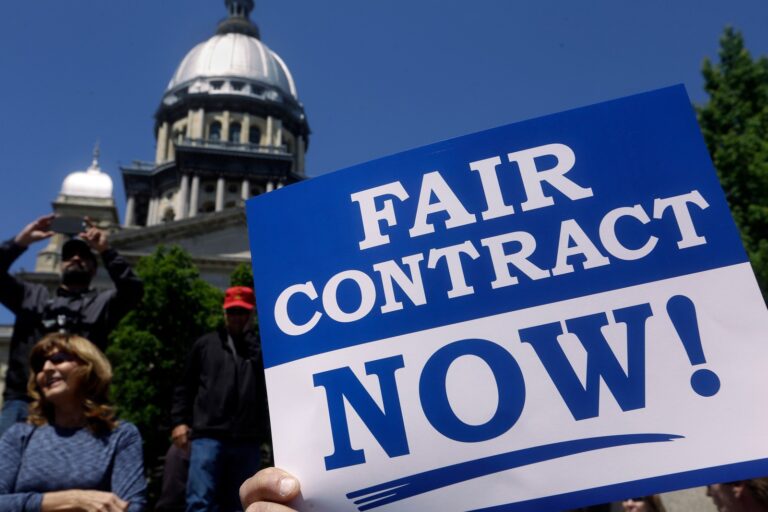This election season, voters in Illinois will decide on a proposed amendment to the state constitution, dubbed “Amendment 1” or the “Workers’ Rights Amendment.”
Voting “yes” on the amendment would establish a state constitutional right for employees to organize and collectively bargain.
Frank Manzo IV, Executive Director of the pro-labor Illinois Economic Policy Institute, said the bill will benefit both private and public sector workers.
“The amendment is really intended to prevent politicians from enacting laws that interfere with the private negotiations of businesses and their workers,” Manzo said. “And by doing so the amendment would protect middle class wages and benefits, and promote workplace safety.”
But Bryce Hill, Director of Fiscal and Economic Research at the libertarian think tank, Illinois Policy Institute, said the amendment will negatively impact workers, because he believes power given to public sector unions will lead to an increase in property taxes.
“The amendment is going to grant government unions the ability to make demands outside the normal scope of bargaining,” Hill said. “I think the largest drivers of property taxes are intrinsically tied to the amendment…the size and scope of government contracts, obviously, has very direct implications for property taxes. Another (factor) being pensions.”
When asked about his report entitled “Amendment 1 would guarantee $2,100 property tax hike for typical Illinois family,” Hill said “(in) the more recent things we’ve written, I don’t think we’ve written (the word) guarantee. I think we’ve written the more conservative estimate of what could happen.”
In that same study, the Illinois Policy Institute notes that it would take four years for the predicted $2,100 property tax increase to occur.
Manzo is critical of the Illinois Policy Institute’s projection, because he said they’re relying on average home prices and average increases in property taxes prior to the amendment.
He added that numerous factors influence property taxes, and that voters can still choose “elected officials who will not raise property taxes.”
“By protecting the right to collectively bargain, the amendment would prevent the property tax base from shrinking,” Manzo said. “That’s because union members earn more money, and are more likely to own their own homes.”
Backers of Amendment 1 have the advantage when it comes to campaign funding.
“The “Vote Yes” campaign committee has raised over $13 million, much of it from building trade unions, while the “Vote No on Amendment 1″ committee founded by Illinois Policy Institute leaders has raised $1 million, all from conservative megadonor and businessman Richard Uihlein,” Jake Sheridan explained in the The Chicago Tribune.
Amendment 1, which needs 60% approval from voters to amend the Illinois constitution, comes amidst a so-called “union wave.”
“Illinois added 16,000 union members last year, which is the first time union membership has grown in Illinois since 2017. But it also comes at a time when 71% of Americans approve of labor unions. And that’s the highest level in six decades,” Manzo stated.
Harrison Malkin is a reporter for Illinois Public Media. Follow him @HarrisonMalkin
Editor’s Note: Every Thursday until the November general election, Illinois Newsroom’s Harrison Malkin conducts a Truth Test, parsing fact vs. fiction in claims made by political campaigns.

